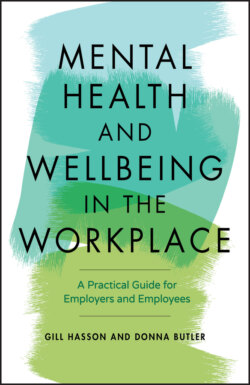Читать книгу Mental Health and Wellbeing in the Workplace - Gill Hasson - Страница 12
Case Study
ОглавлениеOne evening, Catrice was reversing her car into into the garage, when she heard a scream. She had reversed the car over her partner, Julie. Unknown to Catrice, Julie was sitting on the floor at the back of the garage, fixing her bike. Horrified and shocked, Catrice called an ambulance and Julie was taken to hospital. Although she had sustained serious injuries, they were not life threatening and in time, Julie recovered. However, a week after Julie's admission to hospital, Catrice developed a weakness in her lower limbs. Eventually she found that she was unable to stand; each time she tried, her legs gave way from underneath her.
Following weeks of tests, x-rays, physiotherapy assessments, and orthopaedic referral, Catrice's GP, believing that she was experiencing a ‘somatic response’ – a physical response to an emotional trauma – referred her to a psychotherapist.
Catrice had blocked the feelings – the trauma, stress, and guilt – she experienced as a result of Julie's suffering but those blocked feelings had manifested themselves as physical symptoms. With support from a psychotherapist, Catrice recovered; she was able to forgive herself for the pain and suffering Julie had been through as a result of her actions.
People with mental health problems are more likely to develop physical health problems and vice versa. Furthermore, people with mental health problems can present to their GP or employer complaining of physical symptoms that have no physical cause. This can sometimes lead to missed or delayed detection of the underlying mental health problem. The interaction between physical and mental health is complex and it is often difficult to determine the direction of causal relationships.
Professor Dame Carol Black
In the same way that the repression of stressful experiences can become a physical problem, physical health can impact on our mental health.
Psoriasis – an auto-immune condition affecting a person's skin – is an example of a condition which can impact on mental as well as physical wellbeing. A 2010 study published in the journal Archives of Dermatology found that those living with psoriasis are a third more likely than people without the disease to be depressed or anxious. The physical and psychological impacts can be cyclically linked: the condition can cause emotional distress which can trigger a psoriasis flare and, as a result, cause further distress.
